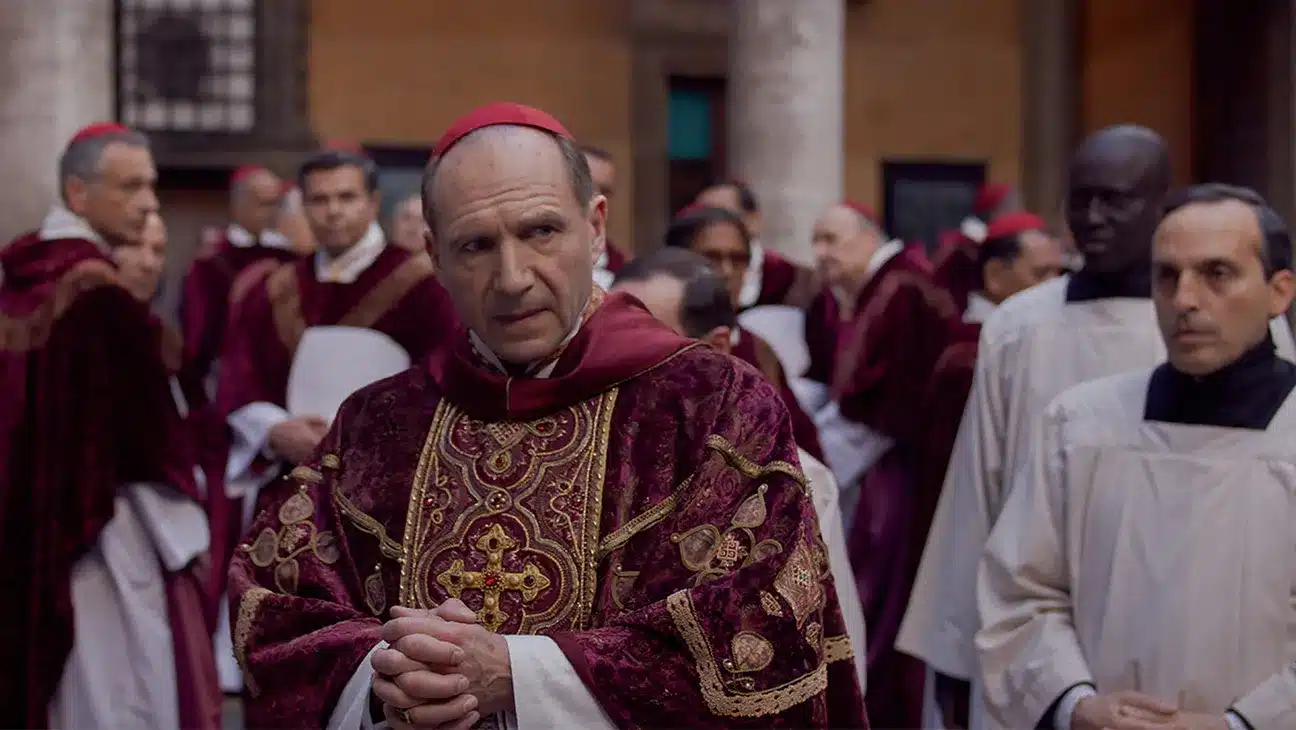
Starring Ralph Fiennes, Edward Berger’s Vatican drama is humorous, venemous and beautifully composed.
In Conclave, Edward Berger follows his 2022 feature All Quiet on the Western Front with a whispering, but no less explosive film. This time, the German director points his camera to the confines of present day Vatican (this is an adaptation of Robert Harris’s novel of the same name), where, following the death of the Pope, a collective of high-ranking cardinals take part in a power struggle to decide on his successor. The result is a slow advance through heart-racing tension, where every second, every line of dialogue feels as measured as an ornately-designed Swiss timepiece.
Ralph Fiennes, Isabella Rossellini, Stanley Tucci, and John Lithgow portray the scheming pontiffs, circling each other with a mix of false Christian kindness and venomous envy. Everyone here plays their part with the required understatement, especially Fiennes, whose worn-down Dean Lawrence—a man struggling with his own faith—is easy to root for. He is an engaging and mysterious main character caught between the corrupt and the genuinely holy. The former is represented by ultra-conservative sleazeball Tedesco, and the latter emerges through the angelic Carlos Diehz, who plays newcomer Benitez, whose genuine piousness causes ripples among the clergy. The ensuing drama sees a battle between liberals and conservatives, political franchises reminiscent of the debates beyond the Vatican walls. It is exhilarating seeing these dynamics play out on such a micro scale.
I loved seeing the modernist apartment rooms where our central characters return to after each vote. They are in opposition to the opulence and grandeur of the Sistine Chapel. Nowhere is this clever play between modernism and antiquity more humorous than when a robed cardinal uses his Nespresso machine.
This is a film about the process of voting; a dull proposition under the lens of most filmmakers. But the voting segments are shot uniquely enough to keep the audience engaged. This is no easy feat, and Berger portrays them together like parts of a broader classical composition, hitting the crescendo in one incredibly shot scene that includes some of the most beguiling photography from any film this year. Indeed, Conclave is full of these images, which gather the ensemble cast in the kind of compositions that we see in the works of Bruegel, or other painters committed to the importance of the smallest details. You could, when the film is eventually available on streaming services, freeze each one and dissect them, and I’m certain this will conjure new theories and explanations when Conclave is released.
Like the best books (and indeed the one it is based on), Conclave is unashamedly multi-layered, quietly complex and demanding of our attention. It is a violent film, not through actual acts of violence, but through the power of deception that cuts through the characters as the story progresses, the kind that we have all felt. And the film is a sign that Berger is one of the greatest directors working today.





